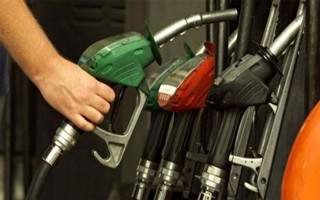
State-owned Petrobangla has signed a production sharing contract (PSC) with Santos-Kris Energy, an Australia-Singapore joint venture, for hydrocarbon exploration in the shallow sea Block-11 in the Bay of Bengal.
Petrobangla’s subsidiary, Bangladesh Petroleum Exploration and Production Company Ltd (BAPEX), will have 10 per cent carried interest in the gas block.
The cost recovery will be a maximum of 55% per year of available petroleum. Of which, the BAPEX will get 10 percent.
The joint venture has also offered 55 to 80 percent profit share to the government in case of gas or oil discovery.
The block SS-11 is located at southeast offshore from Bangladesh and close to Myanmar’s sea territory.
Officials of the Energy Division, Petrobangla, Santos, Kris Energy and Bapex signed the contract at Petrobangla.
Finance Minister AMA Muhith, Prime Minister’s Energy Affairs Advisor Tawfiq-e-Elahi Chowdhury and State Minister for Power, Energy and Mineral Resources Nasrul Hamid Bipu were present at signing ceremony.
The exploration company will propose the selling of the extracted oil and gas to Petrobangla. The contractor can sell its gas to any third party if Petrobangla refuses to buy.
As per the model production-sharing contract, gas price for the shallow sea block has been pegged to high sulfur fuel oil price and the floor price for HSFO has been fixed at US$ 100 per tonne and the ceiling price at $200 per tonne.
Under the deal, Santos and Kris-Energy will invest US$ 15 million as guarantee for an initial eight-year initial period.
Under the Model PSC-2012, Petrobangla had last year invited tender for a total of nine blocks and received offers from three oil-gas exploring companies for four blocks. But there was no competitor for any of the four blocks.
The government on February 17 this year signed a production-sharing contract (PCS) with Indian state-owned Oil and Natural Gas Corporation (ONGC) Videsh Ltd and its partner Oil India Ltd for hydrocarbon exploration in two gas blocks — SS-4 and SS-9 — in the Bay of Bengal.
Besides, the Petrobangla has said that it would sign another deal with US oil-gas exploring company ConocoPhillips for block No. SS-07.
“There’s no alternative to energy for development. I hope that the objectives of the agreement will be achieved,” Finance Minister Muhith said at meet.
The Australia-Singapore joint venture will conduct its work over 4,475 sq km with water depth of 100-1000 (320 ft to 3200 ft) on the offshore block No. SS-11. It will also conduct a three-dimensional seismic survey across at least a 887 km line in the block.
As per the contact conditions, of the total manpower to be engaged in the oil-gas exploration work, at least 50 percent should be recruited from Bangladesh
And in extraction operation, at least 90 percent of the recruits must be from Bangladesh.
In Bangladesh, fertiliser production is entirely depended on gas supplies. Besides, over 70 percent of the country’s electricity comes from gas-driven plants. The government has been facing difficulties in regularly supplying gas to about 2.5 million consumers including industrial and household units.
Currently, the country’s 25 operational gas fields supply nearly 2.3 billion cubic feet of gas per day (mmcfd) to the national gas grid. Yet, the gas deficit at the consumer level is to the tune of 500 million mmcfd.
According to Petrobangla, Bangladesh has so far extracted 11.72 trillion cubic feet of gas and still has a reserve of 15.32 trillion cubic feet.
Under the circumstances, the government is stressing gas exploration and the import of liquid natural gas (LNG) to meet the demands of new consumers.
After formulating the PSC-2012 in September 2012, the state-run energy corporation, Petrobangla, invited an international bidding for 10 to 12 gas-blocks in the shallow and deep-sea areas, except the ones caught up in a dispute with India.
Of the blocks, tenders were invited twice for the shallow-water blocks from SS-02 to SS-04; and from block SS-06 to SS-11. Despite the efforts, only three companies responded.
The Petrobangla suspended its international tender for three deep-sea blocks in February last year, as no international bidder had shown interest. The three deep-sea blocks are DS-12, DS-16 and DS-21, sized between 3,200 and 3,500 sq km, at depths of 200 metres to 2,000 metres.
Later, the PSC was revised to ease some of the conditions in response to demands by contractors.
The government is now evaluating the bids it has got for the three deep-sea gas blocks. ConocoPhillips happens to be the only bidder for all three of them.
The also government signed a deal with the ConocoPhillips in 2011 for oil-gas exploration and extraction from two deep-sea blocks, Ds-10 and DS-11.
Currently, two foreign gas companies – Chevron and Tullow – account for 54 percent of the country’s total gas supplies from four gas fields.
Source: Bd news24








